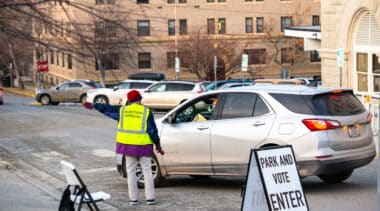Vittorio Nastasi is the Director of Criminal Justice Policy at Reason Foundation.
Nastasi works on criminal justice reform, healthcare regulation, occupational licensing, and environmental policy issues at Reason Foundation.
His work has been published in the Wall Street Journal, Orange County Register, Palm Beach Post, and Tallahassee Democrat, among others.
Prior to joining Reason, Nastasi worked with the James Madison Institute and the DeVoe L. Moore Center focusing on land-use regulation, occupational licensing, and criminal justice reform.
Nastasi graduated from Florida State University with bachelors degrees in Economics and Political Science.
He is based in Tallahassee, Florida.
-
Ohio Issue 1 (2022): Determining bail amounts based on public safety
Would reinstates requirement that Ohio courts consider public safety as well as risk of non-appearance when setting bail.
-
Abolishing Ohio’s death penalty would be good for justice and for taxpayers
Since 1979, 11 people in Ohio have been exonerated while on death row awaiting execution.
-
Nevada Question 3 (2022): Top-five ranked choice voting initiative
Under rank-choice voting, voters rank their preferred candidates rather than selecting one candidate to receive their votes.
-
Montana C-48 (2022): Search warrant for electronic data amendment
Montana’s C-48 would "make it explicitly clear that our digital information is protected from unreasonable government searches and seizures."
-
Regulations keep homeownership out of reach for young Americans
Housing policy reforms are urgently needed to place homeownership back within the reach of younger adults.
-
Florida Gov. DeSantis continues to pursue Everglades restoration
Florida lawmakers have taken significant steps to advance restoration goals and speed up various projects that have been in progress for nearly two decades.
-
Land-use regulations drive up the cost of housing and hamper economic mobility
Excessive regulations are needlessly inflating housing prices and hurting workers and families.
-
Understanding the recent nationwide increase in crime
Violent crime has decreased dramatically since its peak in the 1990s. In 2020, the violent crime rate remained near the record lows achieved throughout the 2000s.
-
Rating states on telehealth best practices
This toolkit aims to help policymakers move towards quality-oriented, affordable, and innovative health systems by ensuring that their state telehealth laws remove barriers that prevent access to care.
-
States need permanent reforms to achieve the full benefits of telehealth services
The rapid rise in telehealth adoption during the pandemic was enabled, in part, by emergency regulatory suspensions at the federal level and in nearly all 50 states.
-
California should remove outdated barriers to telehealth
Getting rid of arbitrary barriers and enabling cross-state telehealth licensing would help Californians during the pandemic.
-
Poorly designed impact fees make housing more expensive
Land-use regulations, building codes, permitting, taxes, and fees are all ways that government policy can affect the cost of housing.
-
Biden Executive Order Expected to Target Occupational Licenses
The Biden administration's effort is admirable and signals continued bipartisan support for occupational licensing reform.
-
COVID-19 Response Shows How America’s Physician Shortage Can Be Addressed
The aging US population is expected to result in a growing shortage of physicians over the coming years.
-
Addressing America’s Aging Population and Long-Term Health Care Crisis
Regulatory reforms could expand the supply of home-health providers, unlock the potential of technological innovation, and better leverage the role of home-health workers.
-
COVID-19 Pandemic Highlights Why States Should Do Away With Certificate of Need Laws
Certificate of need laws are an anti-competitive barrier to entry and are associated with increased costs, lower quality care, and reduced access to care.
-
How Telehealth Services Can Help Address Mental Health Issues and Police Reform Efforts
Individuals with untreated mental illness are 16 times more likely to be killed during a police encounter than those without mental illness.
-
Telehealth Reforms Could Expand Access to Health Care in Louisiana
Eliminate disparities between physician and non-physician providers, reduce barriers for out-of-state providers and expand telepharmacy services.


















